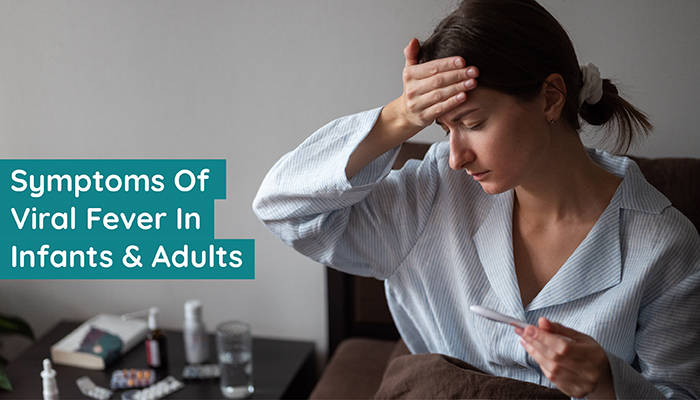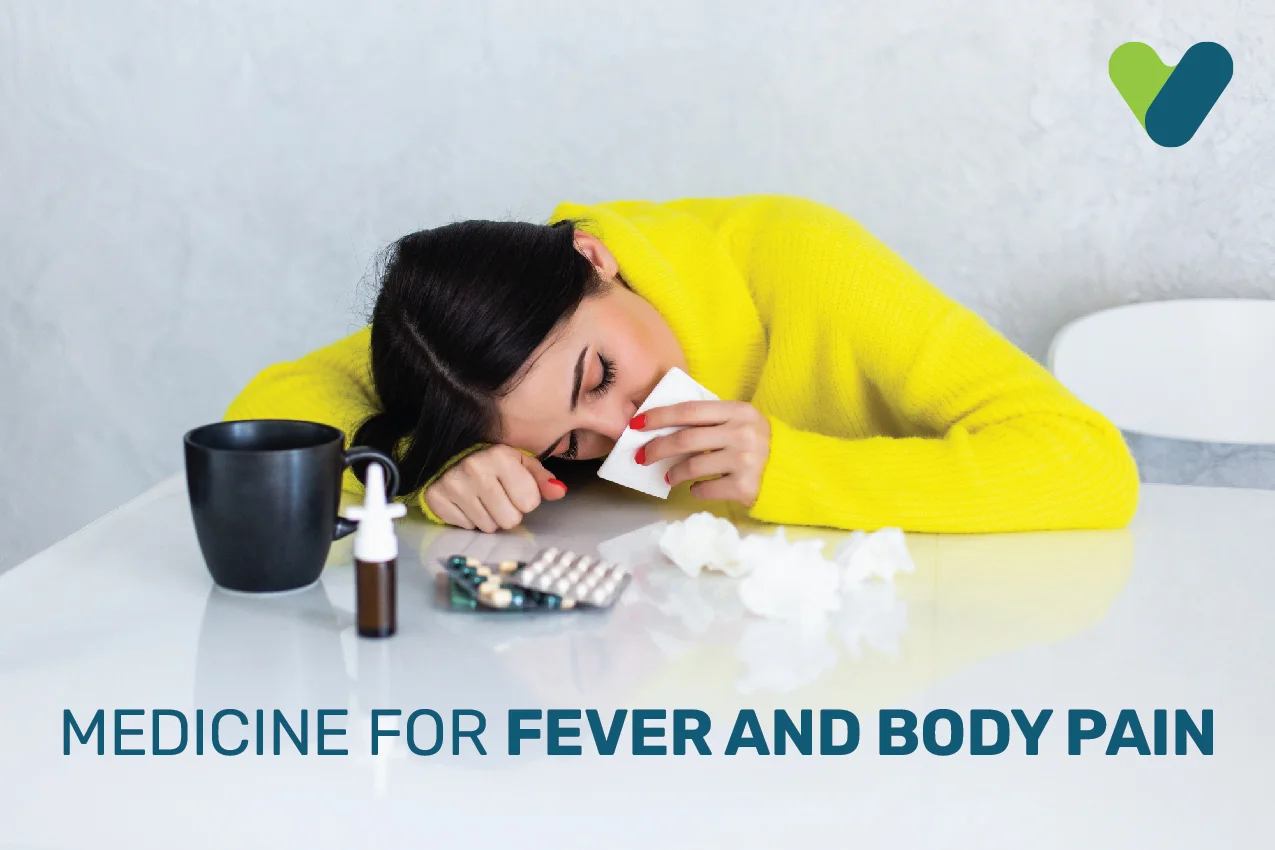Our body temperature fluctuates throughout the day, but remains more or less within a specific range. The average body temperature stays within the range of 97° F to 99° F. If the temperature exceeds this average it means that one has contracted fever. It is a condition where our body's immune system launches an attack against an infection. The most common reason for a fever to occur is a viral infection which occurs due to the transmission of microbes through contact or air droplets. The best way to treat it is to understand viral fever symptoms and causes and get professional help if the symptoms persist beyond a couple of days.
What is the Main indicator of Fever?
A sure-shot method of knowing if you have contracted fever is through your body temperature. Although not the only symptom, it is the primary indicator. You can check it with a thermometer. Depending on your comfort, you can use an oral, axillary (underarm), or tympanic (ear) thermometer. You can also opt for a rectal thermometer to check the temperature in babies. If the temperature exceeds the 100.4° F mark in babies, they may have contracted a fever and need immediate care.Symptoms of Viralfever symptoms
The symptoms of viral fever differ based on its intensity and can be categorised as follows. Common Symptoms Common symptoms are those that occur regardless of your age or gender. Typically, they do not last for a long time, and you can treat them at home with rest and a proper diet. You can also consult your doctor online and take over-the-counter medicines for quick recovery. Some of the common symptoms of fever include the following:- Warm forehead
- Shivering
- Sore throat and the common cold
- Dehydration
- Poor appetite
- Body ache
- Headache
- Fatigue
- Sore eyes
- Excessive sweating
- Severe pain in the head, chest, or stomach
- Skin rash
- Vomiting
- Unusual sleepiness
- Pain while urinating
- Abnormal vaginal discharge in females
- Diarrhoea
- Light-headedness
- Breathing problems
- Convulsions or seizures
- Cognitive issues like confusion
Babies are sensitive to infections. If they show fever symptoms, you must get them checked immediately, as they could indicate severe underlying conditions. Checking the temperature is not always enough, as infants cannot communicate their discomfort. Hence, check for the symptoms mentioned below:
- Restlessness and unresponsiveness
- Pain in the belly
- Excessive vomiting
- Febrile seizure (stiff body, loss of consciousness, and twitching limbs)
- Dry lips and flushed, red face
- Lethargy
- Tiny red spots/splotches on the skin
- Continuous inconsolable crying
Complications of Viral Fever:
Getting medical attention is critical if the fever does not subside within a few days. Failing to do so results in complications that worsen the condition. In such cases, the fever symptoms to check for include:- Hallucinations and delirium
- Seizures
- Extreme dehydration
- Shock
- Dysfunctional respiratory system
- Coma (in severe cases)
Diagnosis After Recognising the Symptoms
Viral fever in mild cases subsides without any treatments within three-four days. But if it persists, you can consult the doctor to diagnose the cause. As plenty of reasons can trigger the occurrence of fever, diagnosis requires various methods. The first step is ruling out the possibility of bacterial infection. To assess the same, doctors analyse your medical history and symptoms. In addition, they ask you to undertake blood and/or urine test or check your saliva to identify the infection. If no bacteria are found, the conclusion is a viral infection. Such tests also help in detecting the presence of viruses.Medication for Treating the Viral fever symptoms
After consulting your doctor to bring down the symptoms, you can take over-the-counter fever-reducing medication. The doctor may also recommend specific antiviral drugs targeting the virus diagnosed in the medical tests. Some common medications suggested to treat high fever are:- Ibuprofen
- Paracetamol
- Antihistamines
Treatment of Viral Fever at Home
Besides medication, you can treat cold fever symptoms at home in the following ways:- Get Sufficient Rest Your body's immune system is activated when you have a fever. During this time, resting as much as possible is good for recovery. Even if you cannot stay in bed most of the time, it helps to avoid straining yourself physically with complex tasks.
- Stay Hydrated As viral fever results in increased body temperature, you can experience extreme fluid loss, resulting in weakness and dehydration. You can fix this by increasing your water intake. You can also replenish the loss of fluids with juices, energy drinks, oral rehydration solutions (ORS), etc.
- Consider Herbal Remedies Traditional herbs are known for their medicinal properties. You can use them to make herbal tea and boost your immune system. Some of them include ginger, basil, black pepper, cloves, etc. They help in reducing the mild symptoms of fever.
- Keep Your Body Cool Reducing your body's temperature is an effective way to relieve the fever symptoms. Some practices to try for the same are lukewarm water baths, wearing light clothing, and staying in ventilated surroundings.
- Focus On Your Diet A proper diet is vital to boost your immune system and fight infections. Hence, you should maintain a proper diet featuring vegetables, fruits, proteins, and other essential nutrients in appropriate quantities to recover quickly.
Things to Avoid When You Have a Fever
When you have a fever, you want to be extra careful and avoid certain practices that elevate it. They include the following:- Self-medicating without adequate knowledge.
- Physically straining yourself instead of resting up.
- Layering up with clothes or bundling up with blankets.
- Sharing clothes, handkerchiefs, water bottles, and food that carry the infection.
- Taking a cold shower.
- Taking antibiotics without a prescription.
- Avoiding food altogether.
- Eating spicy food.
- Drinking caffeinated drinks, soda, or alcohol.
Prevention From Viral Fever
The main reason for viral fever is infection. You can prevent it and avoiding the infection by following these practices:- Washing your hands regularly.
- Keeping your nose and mouth clean.
- Keeping your hands away from your face.
- Keeping the surroundings around your house clean.
- Prioritising your personal hygiene and checking for symptoms of respiratory problems.
- Avoiding contaminated areas or wearing a mask while in such areas.


